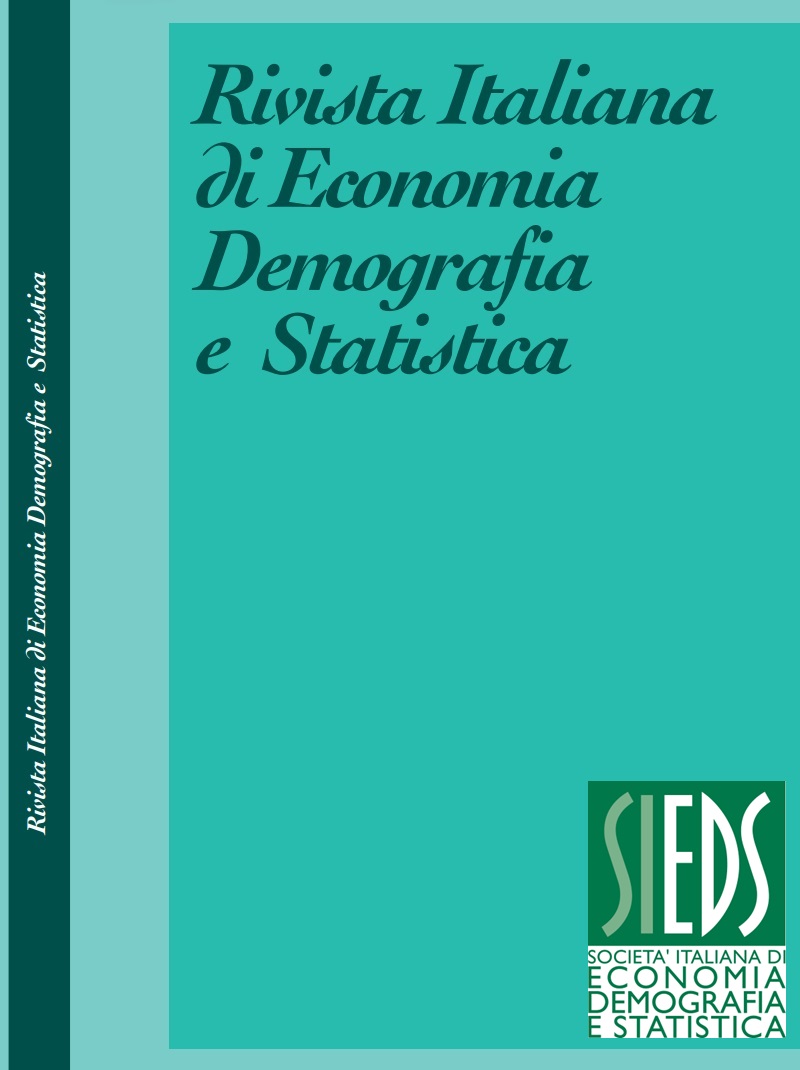Litigants’ Attitudes Toward Civil Justice in Italy
DOI:
https://doi.org/10.71014/sieds.v78i3.389Keywords:
civil justice, satisfaction, lawsuit, trust in institutionsAbstract
The functioning of civil justice represents an essential aspect of the citizens’ quality of life and affects their trust in an institution that is one of the pillars of civil society. Citizens resort to civil justice when they believe their rights have been violated or they want to resolve a dispute. When dealing with “justice”, its evaluation and the citizens’ opinions about it are essential. Policies in the field of justice aim to improve the efficiency of the justice system but also the citizens’ satisfaction with it. Data from the recent 2023 wave of the sample survey “Aspects of Daily Life (A.V.Q.)” provide an opportunity to analyse citizens’ experiences with civil justice. In this study, we analysed the answers given by the interviewees using non-parametric tests, regression models, and correspondence analysis, taking into account the interviewees’ characteristics and some structural characteristics of the trial. By doing so, we intend to identify the determinants of citizens’ satisfaction in civil suits. The overall results highlighted the citizens’ experiences with the judicial process, the problems they perceive, their attitudes, and their opinions towards justice. This analysis represents the first step in checking the outcomes of recent changes in the organisation of civil justice in Italy. It would be the basis for monitoring the effect of alternative dispute resolutions (ADR), which are expected to expand justice efficiency and citizens’ satisfaction.
References
LORIZIO M., GURRIERI A.R. 2014. Efficiency of Justice and Economic Systems, Procedia Economics and Finance, Vol. 17, pp. 104–112. DOI: https://doi.org/10.1016/S2212-5671(14)00884-3
HULST J.E., VAN DEN BOS K., AKKERMANS A.J., LIND E.A. 2017. On the psychology of perceived procedural justice. Frontiers in Psychological and Behavioral Science, Vol. 6, No 1, pp. 1–12.
TYLER T.R. 2016. Why People Obey the Law. Prinston, N.J.: Princeton Un. Press.
SIEGRIST M., 2010. Trust and Confidence. Risk Analysis: An International Journal, 2010, Vol. 30, No 7, pp. 1022–1024. DOI: https://doi.org/10.1111/j.1539-6924.2010.01454.x
GENN H.G. 2008. Judging Civil Justice. Cambridge: Cambridge Un. Press. DOI: https://doi.org/10.1017/CBO9781139192378
RELIS T. 2002. Civil Litigation From Litigants’ Perspectives. Studies in Law, Politics and Society, Vol. 25, pp. 151–212.
TYLER T.R. 1988. What is procedural justice? Law & Society Review, Vol. 22, No 1, pp. 103–135. DOI: https://doi.org/10.2307/3053563
FABRI M. 2009. The Italian style of e-justice in a comparative perspective. In CERRILLO A., FABRA P. (Eds.) E-Justice. Hershey, PA: IGI Global, pp. 1–19. DOI: https://doi.org/10.4018/978-1-59904-998-4.ch001
VERZELLONI L. 2016. Gli avvocati nella giustizia civile. Roma: Carocci.
THIBAUT J.W. 1975. Procedural justice: a psychological analysis. Hillsdale, N.J., Lawrence Erlbaum.
FORNARI A. (edited by), 2013. ADRITALIA, Vol. 1. Padova: Primiceri Editore.
VENDRAMINI C. (edited by), 2022. La mediazione familiare nella riforma Cartabia. Milano: Wolters Kluwer.
KAMILOVSKA T.Z. 2020. Privatisation of Civil Justice, Access to Justice in Eastern Europe, Vol. 6, No 1, pp. 34–45.
WATERS B. 2022. Alternative Dispute Resolution and Civil Justice, The International Journal of Arbitration, Mediation and Dispute Management, Vol. 88, No 1, pp. 3–33. DOI: https://doi.org/10.54648/AMDM2022002
Downloads
Published
Issue
Section
License
Copyright (c) 2024 Claudio Caterino, Isabella Latini, Maria Giuseppina Muratore, Sante Orsini

This work is licensed under a Creative Commons Attribution 4.0 International License.



